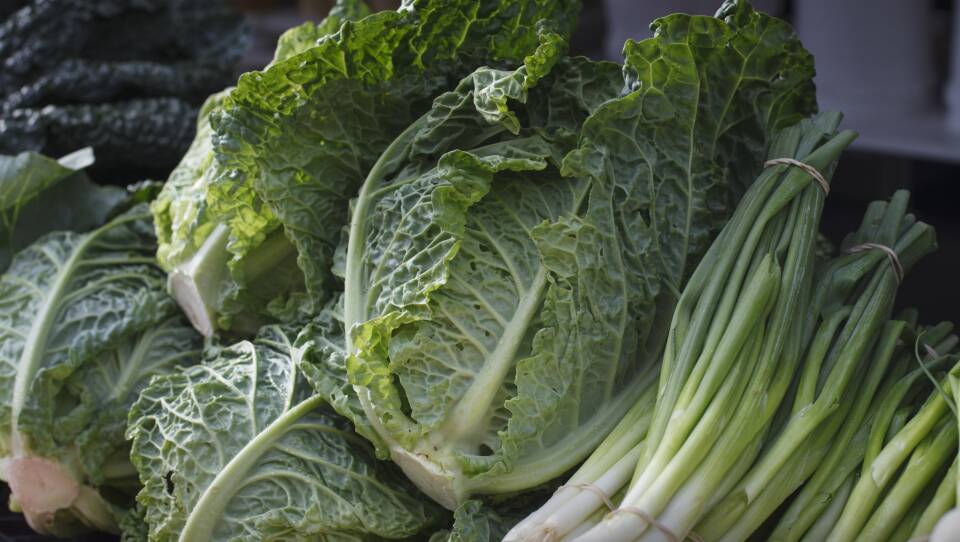As the coronavirus outbreak changes the way people get their food, one local produce delivery company is changing the way it normally does business to fulfill Boston residents' needs. WGBH Morning Edition host Joe Mathieu spoke with Boston Organics President Jeff Barry about how the pandemic is changing regular service. The transcript below has been edited for clarity.
Joe Mathieu: It's good to have you. You are one of those businesses that appears to be in the right place at the right time here. As your corporate business falls off, I'm reading that it's being replaced by huge demand for residential service.
Jeff Barry: Yeah, that's correct. We've been doing grocery delivery since 2002, so we're set up to do this. But over the years, about half of our business had been doing deliveries to offices [and] to office break rooms, and literally within a week, all of that business just disappeared. But within that same week, all that business was replaced with doing more home delivery to the residents of the Boston, Cambridge [and] Somerville area.
Mathieu: Wow. All of that happened in one week. Your head must be spinning.
Barry: Yeah, it was crazy. Even though it's still doing grocery delivery, the nature of the orders changed significantly. We went from delivering primarily just fruits to now we're delivering a lot of our other groceries — milk, eggs, cheese, bread, snacks and things like that. So it's had a big change on our operations. We're managing through it, but it's been challenging. We're thankful that we're all keeping busy, but not the kind of reasons why we like to see growth happening.
Mathieu: Sure. Of course. Well, to that end you must feel lucky, but also smart, Jeff, to have had those two revenue streams existing before this all took place. A lot of companies have simply had to shut their doors.
Barry: Yeah, we've been very, very fortunate in that regard. I didn't foresee the pandemic coming, it's just how we've always been running the business. And yeah, we've just been fortunate that we've had those two different models in our service.
Mathieu: So let's talk about our new world here. You must be hearing from a lot of people who would just rather not go to the grocery store or can't find what they want when they get there.
Barry: Yeah, we're getting more and more calls from people with autoimmune deficiencies. We are limiting the amount of customers that we're able to take in right now, so we're doing everything we can to increase our capacity. But we just want make sure we do it safely, especially for our staff. We keep as much social distance within our warehouse when we're picking the orders and making sure our drivers are safe out on the roads [and] making their deliveries, that they have all the equipment that they need to be safe.
Mathieu: What's a home delivery like these days? Is it much different than the past? Is it contactless?
Barry: Yeah, our deliveries have always been contactless. So the drivers are pretty much solo in their company-provided vehicles. Customers let us know where they'd like us to leave the deliveries and we just leave it. The customer receives an email that the delivery has arrived, they go to their door and they'll find the delivery waiting for them.
Mathieu: How is your staff holding up? Is there a sense of mission?
Barry: I feel like it's growing into that sense of mission. When we were first designated as an essential service, we were kind of lumped in with with liquor stores and package stores, and so we thought that was kind of silly. But now we're really beginning to feel that this is a mission. And we feel the commitment to doing this. Definitely we have a lot of staff that are understandably nervous; we're all putting ourselves out there to some risk just by coming into work every day. But we feel like we're seeing that this is important work. We could shut things down because we're just too nervous to do this and put that responsibility on other delivery services, but we feel like we need to do our part now.
Mathieu: So is it day to day, week to week to that end, or have you made an emotional commitment to hang in there?
Barry: We're committed, but it is definitely day to day, hour to hour. We're trying just to put together as many contingency plans and set ourselves up so that we can avoid having to shut down. I've been in touch with the city of Boston's Department of Public Health for guidance, [such as] what happens if an employee has the virus or what if they know someone that does? What is the protocol for that? And so we'll do what we can to, again, be as safe as possible, but there are just so many things that are out of our control. And we just want to be as responsible and safe as possible.
Mathieu: Jeff, I wonder, lastly, if the orders have changed. Is there anything people are asking for that that might be different than before this, as they try to stock up for whatever comes next?
Barry: It's really across the board. We've been doing the deliveries to people's homes for almost 20 years. We were never like a full replacement for going to the grocery store, but we've always carried a wide variety of groceries so our orders are seeing a lot more grocery items. Maybe in the past, 80 to 90 percent of our sales were of produce. It's now more like 70 [or] 60 percent is produce and the rest are grocery items like peanut butter, coffee, chocolate and things like that.





